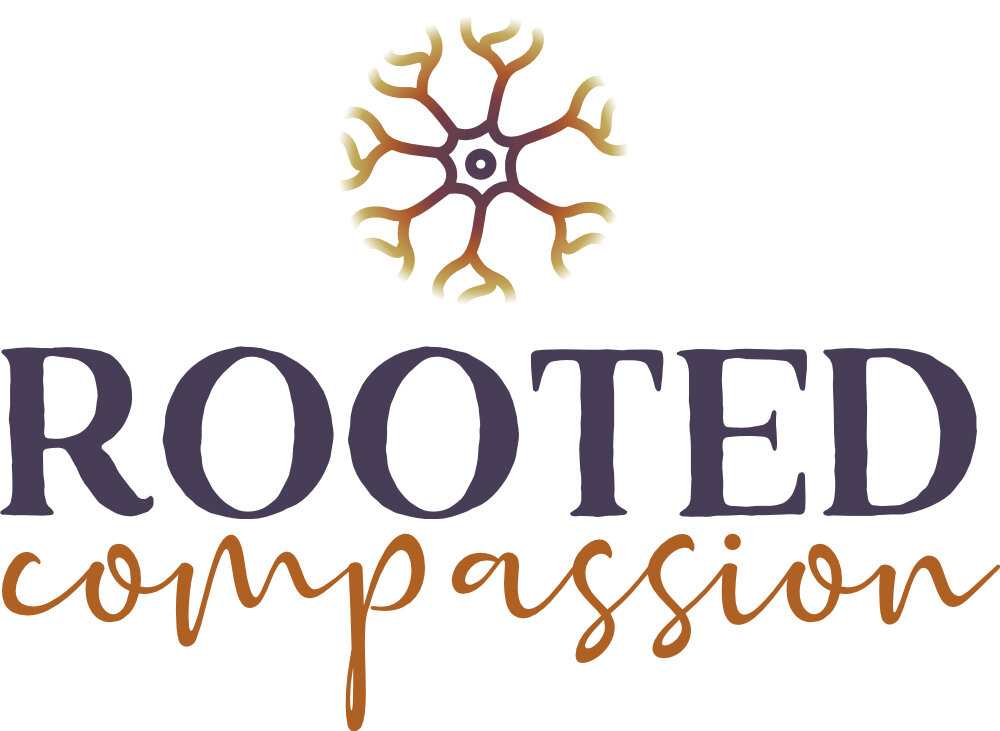Cincinnati Therapist Explains How Our Nervous System is Constantly Looking for Safety: Part Two in the Series About Applied Polyvagal Theory in Therapeutic Yoga
Polyvagal Theory defines our three most basic human drives as:
1. Stay alive.
2. Make sure our species stays alive.
3. Connect to others.
All of these can be accomplished through neuroception, a phrase coined by Dr. Stephen Porges in 2003 (Porges, 2003). Neuroception is an unconscious process within our brainstems in which continuous detection for safety, threat, or danger is occurring, both physically and emotionally. Neuroception draws upon information from our sensory system and can match or mismatch the actual level of risk around or within us.
“The body always leads us home…if we can simply learn to trust sensation and stay with it long enough for it to reveal appropriate action, movement, insight, or feeling.” – Pat Ogden, Founder of Sensorimotor Psychotherapy.
In my mind, as a therapist and Polyvagal Theory enthusiast, I often compare neuroception to a home security system within our bodies.
If our home security system is set and there are no intruders, there is no reason to be alerted, thus, we can feel safe and protected. Let’s say we forgot the system is set and we open the front door – we would likely be alerted by a loud screeching sound that signals a potential intruder (threat or danger). Once we have established the threat is no longer a threat, we can reset the system and return to feeling safe and protected.
While neuroception itself is an unconscious process, through the principles of Applied Polyvagal Theory in Yoga and the integration of our sensory system (exteroception, interoception, and proprioception) we are able to invite conscious awareness to signs of safety or threat within our bodies.
This process is referred to as Svadhyaya - the Sanskrit word for “self-study.” The practice of Svadhyaya assists with bringing perception and awareness to autonomic cues in the body and mind to allow for discernment: if my body could speak, what would it tell me?
“When you pay attention to your internal feedback, you not only enhance your emotional intelligence but can learn to carry this wisdom into the world in a manner that enhances your health and relationships…” – Dr. Arielle Schwartz, 2021
Being able to recognize we have different nervous system states that we might feel at different times - connected, grounded, secure; restless, agitated, anxious; defensively shut down - assists with learning how to interact with our environments and the people around us.
It gives us compassion for all of those different states so we’re not judging ourselves if we're going into fight/flight. We see it as part of how we evolved to reclaim safety. The purpose is to come back to connection--connection within ourselves, with others we consider safe, and what we feel is a higher good in the world.
REFERENCES:
Porges, S.W. (2003). Social engagement and attachment: a phylogenetic perspective. Annals of the New York Academy of Sciences, 1008(1), 31-47.
Schwartz, A. (2021, December 6). Applied polyvagal theory in therapeutic yoga [PowerPoint Slides & Training]. The Embody Lab.
PHOTOS:
Arm - Photo by Natalie Grainger on Unsplash
Megan Kopack (she/her/hers) is a Licensed Professional Counselor experienced in working with those who have experienced trauma, anxiety, depression, symptoms associated with Bipolar Disorder, and Borderline Personality Disorder. She is skilled in synthesizing various therapeutic modalities including The Polyvagal Theory, Mindfulness-Based Practices, Therapeutic Yoga, Somatic-Focused Approaches, Cognitive Behavioral Therapy, and Dialectical Behavior Therapy to create a holistic approach for healing psychologically, physically, and spiritually. Megan is certified in Applied Polyvagal Theory in Therapeutic Yoga and loves to bring any type or style of yoga into the therapy room.
The Rooted Compassion team is made up of a group of counselors who have a variety of specialties in order to best serve our clients. We recognize that every person has his/her own personal and unique life experiences and that one modality will not work for every client. Listed below is a summary of our counselors’ specialties at Rooted Compassion:
Emotional Freedom Techniques
Grief Counseling
Somatic Focused Counseling
EMDR
Cognitive Behavioral Therapy
Dialectical Behavior Therapy
Mindfulness-Based Practices
Trauma Responsive Care Techniques
Acceptance and Commitment Therapy
Drama Therapy/Expressive Arts
If you are interested in learning more about what Rooted Compassion is all about, please contact us today, look through our website, or find us on Instagram and Facebook.
Rooted Compassion Counseling is Ohio’s leading practice for trauma therapy through the lens of the nervous system. Our focus is to walk alongside clients as they heal from depression, anxiety, trauma, grief and/or loss. If you or someone you know are seeking to explore and build an inner sense of calm and safety, please contact us today. We would love to help you to find a counselor and counseling techniques that will guide you on your mental health journey to healing.




